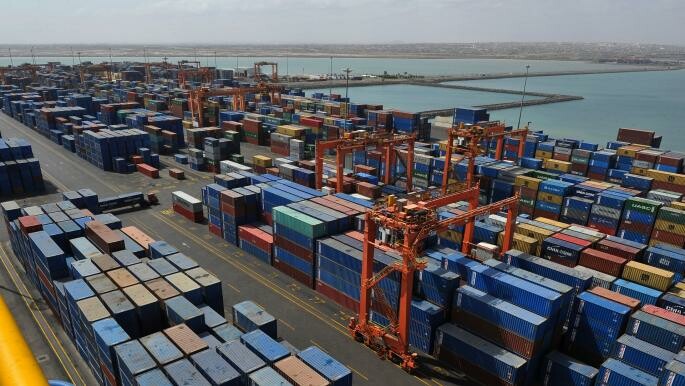The deputy chairperson of the South Sudan National Chamber of Commerce says that once South Sudan starts using the port in Djibouti, the prices of goods and services will significantly decline.
This month, the South Sudan government of South Sudan signed a cooperation agreement with the government of Djibouti stipulating that South Sudan would use the port in Djibouti. South Sudan also bought a piece of land for the construction of a harbor that will handle its import and export goods as Juba seeks to cut reliance on the Mombasa port in Kenya.
In an exclusive interview with Radio Tamazuj on Monday, Ladu Lukak said the decision to use the port in Djibouti is economically sound and advantageous to the nation.
He revealed that after meeting with Djibouti authorities to explore investment opportunities last year, the business community agreed to strengthen economic ties mainly due to Djibouti’s proximity to South Sudan.
“The distance from Dubai to Djibouti is seven days, and from India to Djibouti is 14 days. Compared to the port of Mombasa, the arrival of ships takes a month and a half, and when we add that to the movement of goods, transportation to South Sudan takes more time,” he noted.
He added, “One of the advantages of the port of Djibouti compared to the Kenyan port of Mombasa is the money illegally imposed by governments in East Africa.”
Lukak explained that the shorter the distance between the port and the country, the cheaper the costs of transportation reducing the prices of goods.
The main challenge, according to Lukak, is the lack of proper roads connecting Ethiopia and South Sudan and poor roads within South Sudan.
“We need a highway from Fangak to Malakal town and then roads connecting Malakal to all states. Currently, the Ethiopian government is constructing a highway from Gambella to the border,” he added.
Mombasa has been the main route for all consignments destined to the landlocked country with South Sudan importing nearly all of its cargo through the Kenyan port.




